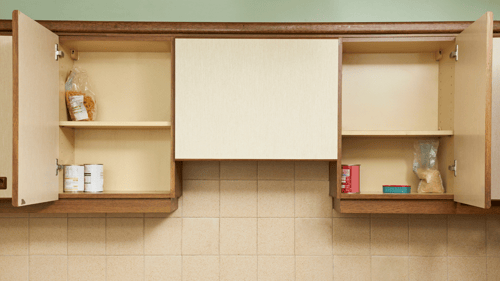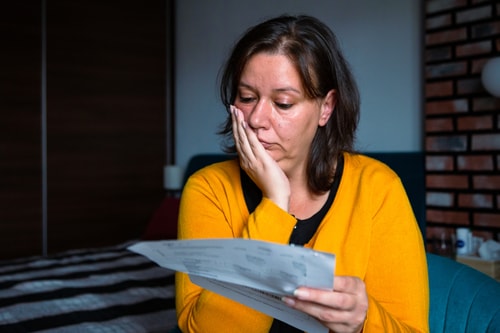Last winter was one of the hardest in my 15 years of co-ordinating food support projects in the Craigavon Area.
On one occasion I was stood in a carpark outside our foodbank whilst a woman broke down right in front of me. It was the second time that morning she had been reduced to tears. The first was after coming into our building, a nervous first-time foodbank user. Her tears were of relief, when she saw the significant amount of food set aside for her family.
The second time she cried was as she told me her story, whilst we loaded the boot of her car with boxes of food. She had found herself needing help after making the difficult decision to give up her job to look after one of her children, who has additional needs. Her husband was working, but their income was not sufficient to meet their outgoings due to the rise in food and utility prices. What really struck me was her words of concern for her husband, who is a night-shift worker, “He just can’t work any harder”.
Sadly, stories like this are commonly heard in foodbanks throughout our country. A familiar reality for so many people in the low wage economy. They are often working hard but find the rising cost of living surpasses their monthly income. She was blessed to receive help from our foodbank and we told her about a social supermarket project that could support them longer term. It is experiences like this which trouble me deeply, as I am reminded that a form of survival is often the only option available to an increasing number of people in our society.
Her story makes a mockery of the ‘benefit scroungers’ narrative perpetuated by politicians and national newspapers and reinforced by the poverty voyeurism on our TV screens.
Throughout the cost of living crisis, we have heard the false narrative that we are ‘all in this together’. This is clearly not the case, as those in lower incomes face the difficult choices of heat or eat on a regular basis. Whilst many others are unaffected.
In November, winter arrived with a cold snap and the promised winter fuel payments disappeared, along with any hope of a functioning government at Stormont. Unsurprisingly foodbank usage spiked in response to the change in weather. But the level of change was unprecedented, with many crisis response organisations reporting a 50% increase in their work.
As chairman of Craigavon Area Foodbank for over a decade, I have seen these trends come and go, but for the first time I found myself making a mental calculation: when will we reach capacity, how many people do we have the ability to help each week? We are very fortunate that we have such generous donations from the community that I wasn’t concerned about running out of food. The concern related to the capacity of our volunteer teams packing boxes and carrying out deliveries.
"A form of survival is often the only option available to an increasing number of people in our society."
With this concern came an awareness of looming impossible decisions. Could it reach a point where we would have to say no, or choose who gets food and who doesn’t? Who makes that decision and what would be the criteria? This concern has been described as ‘moral distress’, a circumstance increasingly faced by my staff team as they responded to the daily emergency requests for support and listened to the heart-breaking stories that accompanied them.
Rita Devlin, director of the Royal College of Nursing, recently described this phenomenon whilst discussing the pressures on nurses due to the healthcare crisis, “Moral distress happens when you know what the right thing is to do, but you are not able to do it, which leads to moral injury, which in turn causes burn-out and mental health issues”.
Foodbanks and other compassion charities are increasingly facing this dilemma in a sector supported primarily by volunteers, who are often not equipped to make such emotionally challenging decisions.
A ray of light came in January when, after much delay due to the lack of a functioning local government, every household received a one-off £600 winter fuel payment. I have spoken to numerous support charities throughout Northern Ireland over the past month and they have all commented on the difference this money made. Support requests dropped significantly overnight and continued at low levels for weeks, before beginning to rise slowly. This intervention highlights two things, one, the support was needed and used for essentials such as energy and food by those on lower incomes and two, when government support was given, crisis requests dropped. These two points examined together highlight that when people are given the means to support themselves, they are resourceful and self-sufficient. This contradicts the scrounger narrative and speaks to the desire of most people to help themselves when they can.

Jesus said that “I have come that you might have life. Life in all its fullness” (John 10:10). The plight of people in poverty touches the heart of God and should touch our hearts too. Unfortunately, the level of poverty in the UK will only increase unless we challenge the status quo, and wrestle with how the church can play an increasing part in rewriting the story.
The words of Dr Martin Luther King echo through the decades and provoke the church to awaken and cry out on behalf of the poor (more than just feed them):
“Any religion that professes concern for the souls of men and is not equally concerned about the slums that dammed them, the economic conditions that strangled them and the social conditions that crippled them is a spiritually moribund religion, only waiting for the day to be buried. A religion that ends with the individual, ends.”
The challenge for Christians in these times is to both help address need, in a way that empowers and involves those in poverty and speak out against systems (both economic and governmental) which cause people in poverty more harm.
Much great work is being done in foodbanks, social supermarkets, advice centres and other support services. Hundreds of volunteers are deployed on a weekly basis to meet practical needs and speak hope into difficult circumstances. I am continually blown away by their generosity and sacrificial service! But, as we continue to emerge into a post-pandemic era, it is time to dream again and let new creative initiatives spring up that will bring Jesus shaped justice to the poor.
Related pages:

Membership
By becoming a member, you are joining the oldest and largest evangelical unity movement in the UK. Together we're making Jesus known



